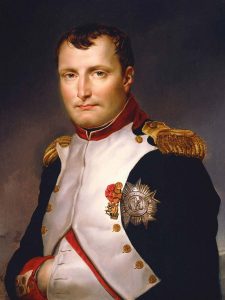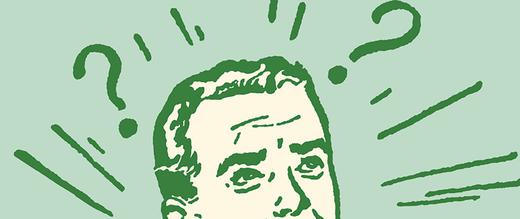The views expressed in our content reflect individual perspectives and do not represent the authoritative views of the Baha'i Faith.
Give this one some thought: who were history’s most influential people? Who had the strongest influence on the entirety of humanity?
Historians have made many lists ranking the most influential people of all time, but a few years ago Time Magazine asked that question, did a data-driven analysis, and even subjected it to some scientific rigor:
When we set out to rank the significance of historical figures, we decided to not approach the project the way historians might, through a principled assessment of their individual achievements. Instead, we evaluated each person by aggregating millions of traces of opinions into a computational data-centric analysis. We ranked historical figures just as Google ranks web pages, by integrating a diverse set of measurements about their reputation into a single consensus value. – Who’s Biggest? The 100 Most Significant Figures in History, by Steven Skiena and Charles B. Ward, Time Magazine, December 10, 2013.
By far the largest percentage of individuals on Time’s list of the 100 most significant people in history—a quarter of them—turned out to be major religious figures or philosophers, the influential prophets and messengers whose concepts, ideas and actions affected millions upon millions of people over many centuries. Here are Time’s top five:
- Jesus
- Napoleon
- Muhammad
- William Shakespeare
- Abraham Lincoln

Napoleon
You can easily understand why Christ and Muhammad are placed so highly on this list: because they started global Faiths with billions of adherents, and because their teachings had such a profound impact on their followers, on multiple civilizations and on the history of humanity itself over the course of centuries. Arguably, Napoleon’s #2 ranking reflects the fact that he changed the face of Europe during his era, but after all, both Christ and Muhammad changed the face of the entire world—for thousands of years.
Time’s list, like many such lists, admittedly has some Western bias built in—several of the people on it are American presidents, for example, and seminal historical figures like Buddha and Moses rank much lower than they should—but it does take into account the enormous impact of the founders of the world’s Faiths. You can count the most widely-known of those prophets and messengers on two hands: Krishna, Abraham, Moses, the Buddha, Zoroaster, Christ, Muhammad and now Baha’u’llah, all founders of global religions that inspired millions of followers and actually changed humanity’s thinking and subsequent progress in the process.
So here’s a thought: what if we modified the Great Man Theory of history a bit, given this spiritual perspective, and called it the Prophets of God theory? What if we began to view those prophets and messengers as the true founders of not only religion, but of civilization itself?
The reading of history brings us to the conclusion that all truly great men, the benefactors of the human race, those who have moved men to love the right and hate the wrong and who have caused real progress, all these have been inspired by the force of the Holy Spirit.
The Prophets of God have not all graduated in the schools of learned philosophy; indeed they were often men of humble birth, to all appearance ignorant, unknown men of no importance in the eyes of the world; sometimes even lacking the knowledge of reading and writing.
That which raised these great ones above men, and by which they were able to become Teachers of the truth, was the power of the Holy Spirit. Their influence on humanity, by virtue of this mighty inspiration, was great and penetrating.
The influence of the wisest philosophers, without this Spirit Divine, has been comparatively unimportant, however extensive their learning and deep their scholarship.
The unusual intellects, for instance, of Plato, Aristotle, Pliny and Socrates, have not influenced men so greatly that they have been anxious to sacrifice their lives for their teachings; whilst some of those simple men so moved humanity that thousands of men have become willing martyrs to uphold their words; for these words were inspired by the Divine Spirit of God! – Abdu’l-Baha, Paris Talks, pp. 164-165.
The philosopher Hegel agreed when he said: “Such are great historical men—whose own particular aims involve those large issues which are the will of the World-Spirit.”
Of course, I’ve only mentioned the best-known of the great founders of Faith. Every culture and civilization has had its own divine messenger, culture hero or prophet, the spiritual leader who led people toward peace, unity and love for others. Each indigenous people and culture has at least one such spiritual messenger. You may have heard of some of them—the Mayan messenger Quetzlcoatl, for example, or Deganawida, the Great Peacemaker, the revered prophet of the Haudenosaunee, the Iroquois Confederacy—but the names of many more have been lost in the passage of time:
… I have sent to you all My servants the prophets, sending them again and again, saying: ‘Turn now every man from his evil way and amend your deeds, and do not go after other gods to worship them.’ – Jeremiah 35:15.
And to every people have we sent an apostle. – Qur’an, 16:38.
God hath raised up Prophets and revealed Books as numerous as the creatures of the world, and will continue to do so to everlasting. – The Bab, Selections from the Writings of the Bab, p. 125.
Know thou that the absence of any reference to them [Prophets before Adam] is no proof that they did not actually exist. That no records concerning them are now available, should be attributed to their extreme remoteness, as well as to the vast changes which the earth hath undergone since their time. – Baha’u’llah, Gleanings from the Writings of Baha’u’llah, p. 172.
When you see this historical pattern by looking across the full scope of human history, and evaluating the influence of these towering spiritual leaders, you’ll begin to recognize their powerful impact.
But what if we took this Prophets of God theory of history a step further—as the Baha’i teachings do—and began to regard each of those divine messengers as one?

















Comments
Sign in or create an account
Continue with Facebookor